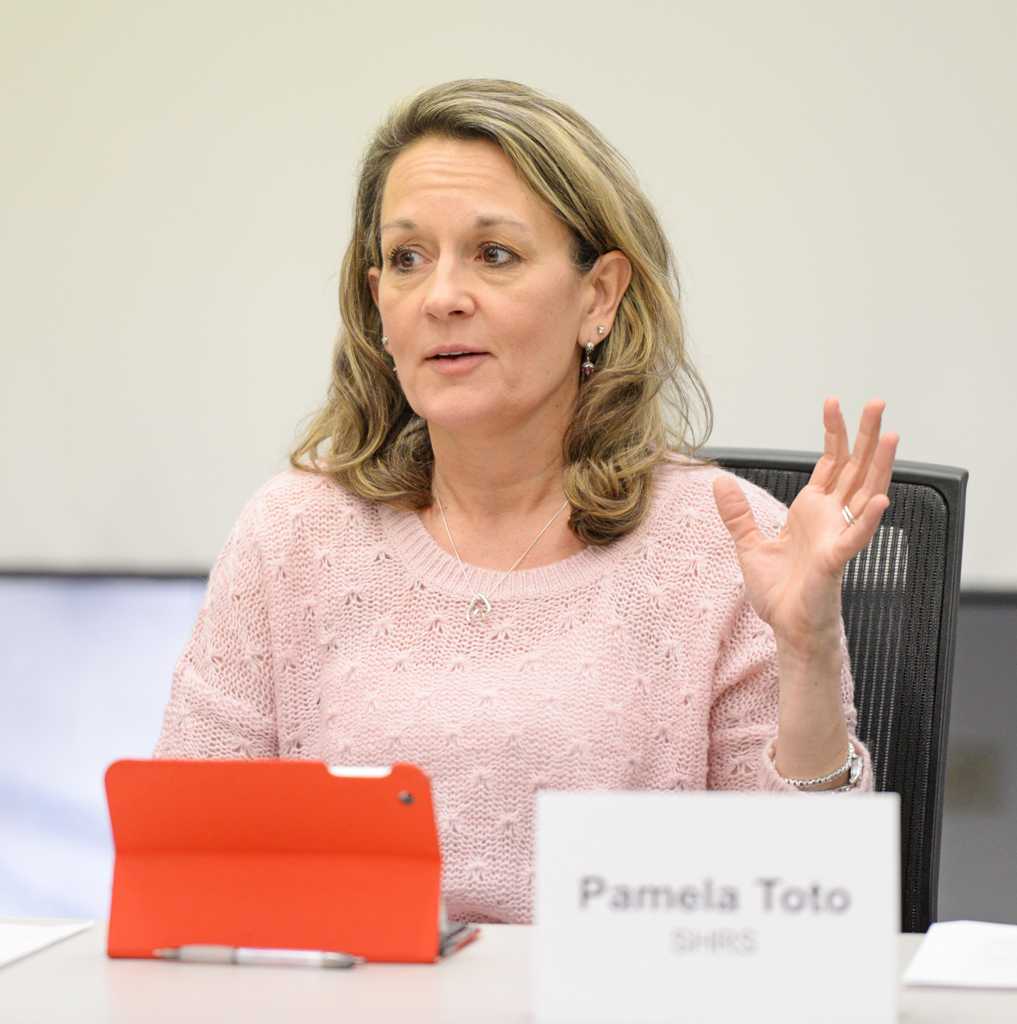Pitt considers year of ‘diversity and inclusion’


Co-chair, Pamela Toto, speaking during the University Senate: Community Relations Meeting which was held on Tuesday in Hillman Library. The committee approved a proposal to focus on diversity and inclusion next academic year. Will Miller | Staff Photographer
The University is considering making the 2016-17 school year the “year of diversity and inclusion,” according to
a vote from the University Senate Community Relations Committee.
At the committee’s monthly meeting Tuesday in Hillman Library, Pamela Toto, co-chair, pitched a preliminary proposal to support the 2016-17 possible theme, which nine committee members approved unanimously.
The Senate Council subgroup of Diversity and Inclusion, which proposed the theme at its meeting last week, will present the idea to the full Senate Council next month.
Starting last year with the Year of the Humanities, the University uses a theme to promise attention to a specific area of education. Members of the Senate Council subgroup asked Toto to share the preliminary proposal for the theme with the Community Relations Committee to collect feedback.
“According to the Senate Council subgroup, their next step is to present the proposal to the entire Senate Council on March 23 for initial approval,” Toto said.
If the full Senate Council — and later the administration — approves the proposal, the Senate will outline a plan to fund events and programs for the year.
In line with the diversity and inclusion theme, the Senate Council subgroup, according to Toto, plans to establish a Pitt Promise panel to reduce misconduct and guarantee respectful treatment to the entire University community.
“The group also plans to form a diversity and inclusion advisory council for the Office of Diversity and Inclusion in order to ensure diversity growth at Pitt,” Toto said.
According to Toto, the Senate Council subgroup proposed hosting a diversity and inclusion dialogue session, which would include a presentation to discuss why diversity and inclusion is essential to engaging the University community.
After voting to support the new theme, the committee also voted to approve an Academically Based Community Engagement document regarding initiatives to further increase engagement within the Pitt, regional and global communities.
According to Tracy Soska, community relations member, the document came from faculty roundtable discussions in September that addressed ways to engage student and faculty with the community.
The Community Relations committee unanimously approved the document outlining initiatives on incorporating community engagement into course curricula.
The next step requires the committee to submit the document to the administration for review, although Soska said he did not know when they would do so.
“The faculty strongly supports creating a centralized office for academically based community engagement. This is important for building a clear infrastructure for support and outreach,” Soska said.
The office could potentially identify community needs and priorities, match faculty with community partners and develop and maintain relationships with community partners, according to Soska.
Soska said faculty, students and community organizations are equal partners in community engagement, but each have different priorities and needs that should be addressed when instituting projects and support centers.
According to John Wilds, assistant vice chancellor for community relations, the document creates clear guidance for faculty about how community engagement work affects promotion and tenure decisions.
“We hope this commitment to community impact will continue to foster and support community-engaged learning, engaged faculty research and ongoing community partnership,” Wilds said.
Recent Posts
Opinion | Elon Musk has succumbed to the anti-woke mind virus
The idea of a political mind virus is intriguing, and if we chart his personal…
Editorial | The GPT-4 Studio Ghibli trend again reveals a horrible misappreciation for human-made art
Ignoring the potential violations and oversteps of copyright law, the ability to immediately generate images…
Review | ‘Opus’ feels like a rush job
Mark Anthony Green's “Opus” displays a lackluster plot despite brilliant performances. “Opus” leaves a confusing…
‘The new normal’: Pitt athletes reflect on changing landscape of women’s sports
Thanks to Title IX, college women athletes across the country have opportunities most women 60…
Column | This Pirates team doesn’t feel new
Look, baseball is a long season. If there is any sport that you can’t overreact…
Water outage causes ‘panic’ amongst students
A water main break on Tuesday night caused stress and confusion for students living in…
